Search the Special Collections and Archives Portal
Search Results
Valerie Wiener's oral history for UNLV Libraries Southern Nevada Jewish Heritage Project, 2015
Level of Description
Archival Collection
Collection Name: Valerie Wiener Papers
Box/Folder: Box 08
Archival Component
Las Vegas, Nevada Anti-Gay Counter-Protest Collection
Identifier
Abstract
The Las Vegas, Nevada Anti-Gay Counter-Protest Collection (2001) documents the counter-protests against supporters of Reverend Fred Phelps of the Westboro Baptist Church at their anti-homosexual demonstrations. The counter-protests were held at the University of Nevada, Las Vegas campus and the Liberace Museum on March 10, 2001. Materials in this collection included a typed excerpt from the journal of Dennis McBride recounting his experiences on the day of the protest. Also included are photographic prints of counter-protestor Joshua Dart at the demonstration, a poster from the demonstration, correspondence between McBride and Dart, and an issue of the
Archival Collection
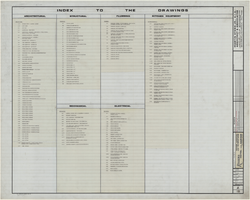
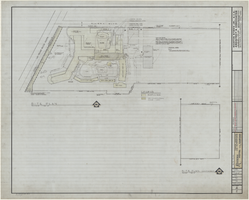
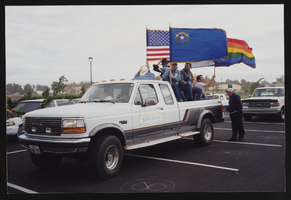
Nevada Gay Rodeo Association float at the second annual Gay Pride parade, image 001: photographic print
Date
Archival Collection
Description
Image
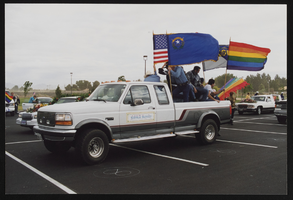
Nevada Gay Rodeo Association float at the second annual Gay Pride parade, image 003: photographic print
Date
Archival Collection
Description
Image
Dennis McBride Collection of Gay Erotica
Identifier
Abstract
The Dennis McBride Collection of Gay Erotica (1960-2006) contains a selection of pornographic publications, three VHS tapes of erotic films, and photographic prints mail ordered from gay erotica or physique photography studios. The three studios represented in this collection are Alexander Studio, Sierra Domino Studio, and Third World Studio.
Archival Collection
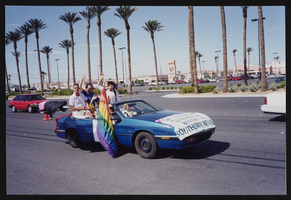
Gay and Lesbian Community Center of Southern Nevada float in the Gay Pride parade, image 005: photographic print
Date
Archival Collection
Description
Image
Philip Murphy oral history interview
Identifier
Abstract
Oral history interview with Philip Murphy conducted by Stephen Johnson on January 22, 1972 for the Ralph Roske Oral History Project on Early Las Vegas. Murphy shares his memories of growing up in St. Thomas, Nevada. He also talks about the growth of Southern Nevada as people moved towards the west.
Archival Collection
Claytee D. White oral history interview
Identifier
Abstract
Oral history interview with Claytee D. White conducted by Stefani Evans on November 2, 2023 for the African Americans in Las Vegas: a Collaborative Oral History Project. In this interview, Claytee D. White, founding directory of the Oral History Research Center at UNLV Libraries, celebrates the twentieth anniversary of the OHRC by contributing her oral history to the collection.
She begins by explaining how the system of sharecropping worked in her family near rural Ahoskie, North Carolina, and she talks about the field work involved in raising cotton, tobacco, corn, and peanuts. The fifth of eight children and the first daughter, she shares memories of going into town with her mother, of admiring her women teachers, and of attending North Carolina Central College (now University) for two years before moving to Washington, D.C., and working for the telephone company.
After recalling her two years in D.C. and 22 years in Los Angeles, California, she describes "running away" to Las Vegas, Nevada in the early 1990s. Here, at the History department at UNLV, she recalls learning to conduct oral histories. White shares memories of her first interviews with Hazel and Jimmy Gay and Lucille Bryant. She talks of matriculating to the College of William and Mary for her PhD and of returning to Bertie County to live with her mother and administer the office of The Shaw University Center for Alternative Programs in Education (CAPE). She describes how she was offered the position of OHRC founding director, why it matters that she was an "opportunity hire," and how it feels to be the only Black person in a room.
Archival Collection
